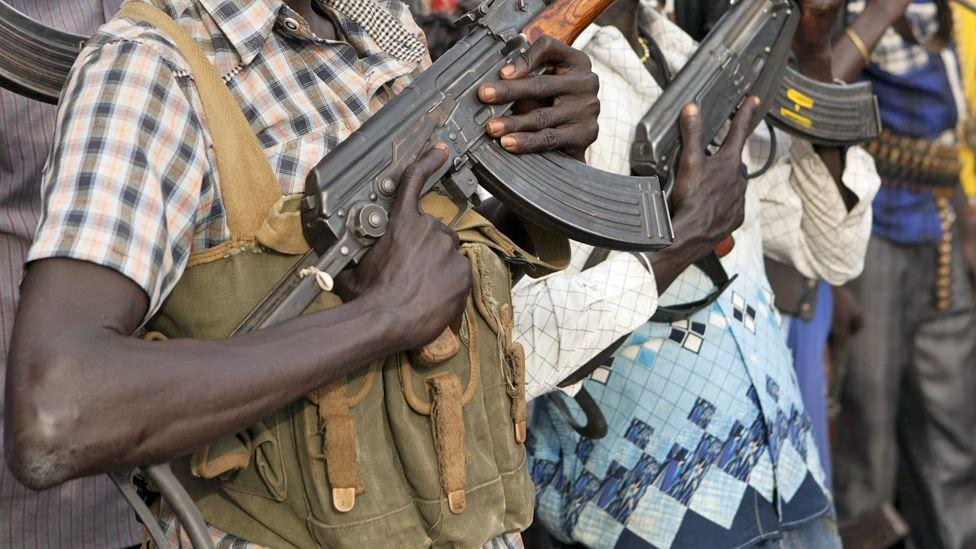Barrel bombs believed to contain a highly flammable liquid have been used in airstrikes in South Sudan as escalating violence pushes the world’s newest country to the brink of another civil war, the UN has said.
The comments by Nicholas Haysom, head of the UN mission in South Sudan, follow recent fighting between the army and a rebel militia, known as the White Army, at a military base in the northern town of Nasir in oil-rich Upper Nile State.
Since the White Army overran the base, there had been persistent aerial bombardment causing “significant casualties and horrific burns”, he said.
“A conflict would erase all the hard-won gains made since the 2018 peace deal was signed,” he warned.
“It would devastate not only South Sudan but the entire region, which simply cannot afford another war,” Mr Haysom said.
The government has not responded to the barrel bomb allegations.
President Salva Kiir and his rival Vice-President Riek Machar agreed in August 2018 to end a five-year civil war that killed nearly 400,000 people.
But over the last seven years their relationship has become increasingly strained amid ethnic tensions and sporadic violence.
In early March, several of Machar’s most senior allies were arrested by security forces, which his allies called a “grave violation” of the peace deal.
This followed the clashes between the military and the White Army, which fought alongside Machar during the civil war that erupted in 2013 – not long after the country had gained its independence from Sudan.
“In retaliation, communities across Upper Nile are being subjected to persistent aerial bombardment using devices, barrel bombs, allegedly containing a highly flammable liquid that acts as an accelerant on explosion,” Mr Haysom said.
“These indiscriminate attacks on civilians are causing significant casualties and horrific injuries, especially burns.”
Such allegations were first made last week by local leaders in Upper Nile.
James Gatluak Lew, Nasir county commissioner, told the BBC that state forces and their allies had carried out “chemical bombardments”.
Local media reported that ethyl acetate, a highly flammable chemical compound, was found at the attack sites.
In an earlier interview with the BBC, Edmund Yakani, the head of a local non-governmental organisation, said he had heard similar reports.
Eyewitnesses, including local community leaders and business informants, had told his Community Empowerment for Progress Organisation (CEPO) about the use of “unusual weapons”, he…
Click Here to Read the Full Original Article at Yahoo News – Latest News & Headlines…

